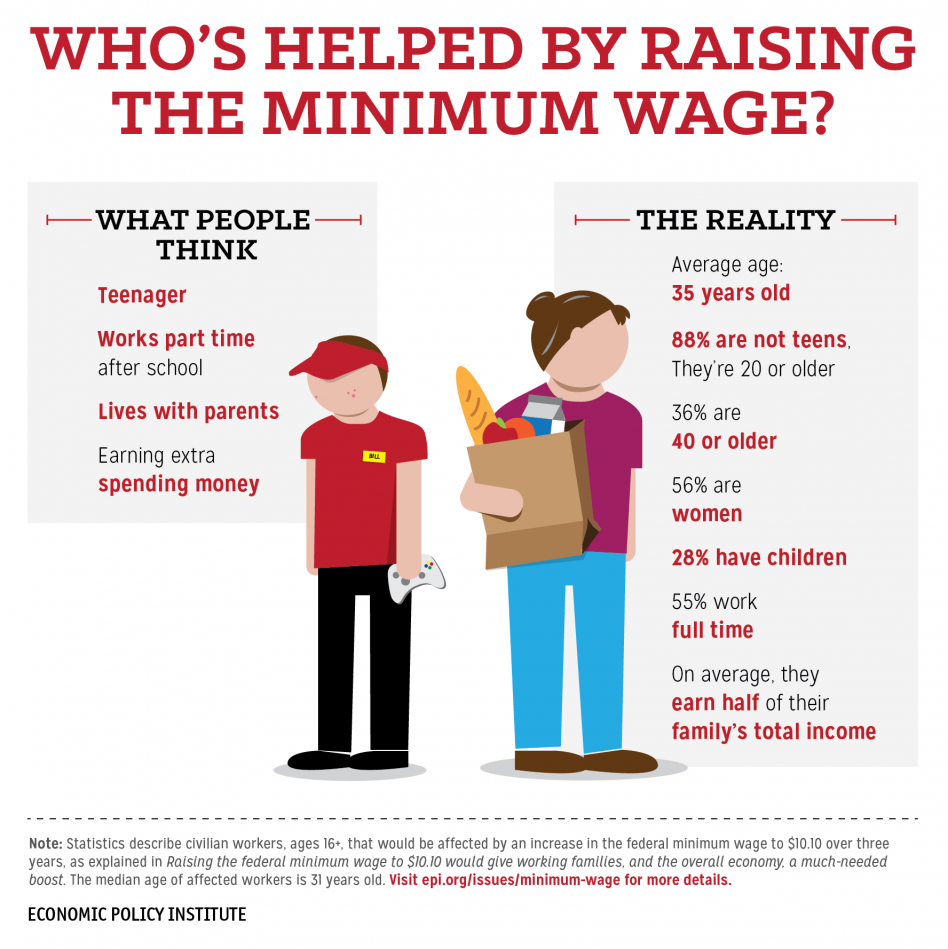
New study: Raising the minimum wage could lower the suicide rate
We know there are benefits to raising the minimum wage. These include reducing income inequality, making it easier for workers to afford life’s necessities, including rent and food, and stimulating the economy because it follows that when people earn more, they have more to spend.
Now we can add one benefit to the list: minimum wage increases might contribute to a lower suicide rate.
A new study released this week and reported in the Washington Post demonstrates a correlation between an increase in the minimum wage and declining suicide rates among adults who are between 18 and 64 years old. The study, conducted by Emory University researchers and published in the Journal of Epidemiology & Community Health, found that state-level increases of $1 in minimum wage corresponded with a 3.4 percent to 5.9 percent decrease in the suicide rates of people with a high school diploma or less in that age group.
That’s important, because in the past three years, life expectancy in the U.S. has declined for three years in a row, a combined result of drug overdoses, alcoholism, and suicide – the suicide rate in the U.S. is the highest it has been since 1938. And it is promising news because in the past two weeks alone, some 20 states have raised their minimum wage.
“Our findings are consistent with the notion that policies designed to improve the livelihoods of individuals with less education, who are more likely to work at lower wages and at higher risk for adverse mental health outcomes, can reduce the suicide risk,” the researchers wrote.
The Emery University study is not the first of its kind. Last year, researchers at the University of California at Berkeley released a report that found a 10 percent increase in the minimum wage reduced suicides by 3.6 percent among adults who have a high school diploma or less. That report received widespread media attention.

“We’ve known for a long time that economic distress affects people’s well-being,” said John Kaufman, a doctoral student in epidemiology at Emory and the lead author of the report. “So in our study, we’re just trying to estimate what’s the strength of minimum wage increase.”
Kaufman said the results raised the question of what other significant mental-health outcomes could result from an increased minimum wage. “Suicides are an indicator of the most extreme end of the despair spectrum, so to speak,” he said. “We’d expect to see more effects on more common problems like depressions, attempted suicide, and drug use as well.”
It is certainly welcome news that so many states, counties and cities recently have raised their minimum wage. But it is important to remember that the federal minimum wage is stagnant at $7.25 an hour and has not been raised in more than a decade. Advocates for a higher wage note that a worker earning the federal minimum wage would make $15,080 a year – below the federal poverty level of $16,020 for a family of two.

